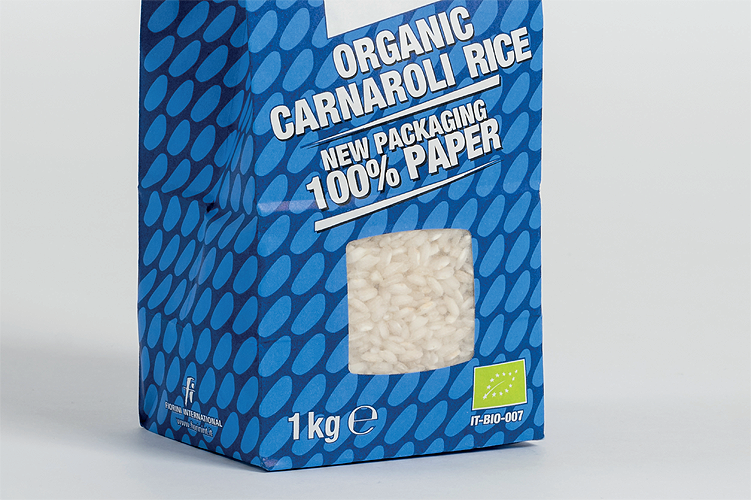
Working together
There has been increasing awareness that excessive packaging is harmful for the environment and that more can be done. It is also clear that responsibility lies across the value chain including manufacturers, brand owners, retailers, governments and consumers. But what are the main issues? Does the answer simply lie in less packaging? Taking a closer look, given the essential role packaging plays in society and the infrastructure managing end of life packaging, as well as the legislation concerning packaging and plastic, it soon becomes apparent that all is not so straightforward. Collaboration plays an essential role in arriving at sensible solutions for mitigating harmful effects on the environment while ensuring packaging manufacturers meet the needs of society, brand owners and consumers.
Heightened consumer awareness and legislative changes
Plastic pollution and deforestation have become the ubiquitous symbols of the degradation of our natural environment, bringing the need for sustainable packaging to the front of public consciousness. Research by Boston Consulting Group has shown that at the beginning of the pandemic, individuals were concerned by environmental challenges and pointed the finger at businesses to consider the environmental impact of their products, services and operations to a greater extent than before.
Consumers are looking for brands that care for people and the environment and packaging is a crucial way for consumers, retailers and brand owners to communicate their values to stakeholders.
Which packaging material is the right choice?
The purpose of packaging is clear: protect products from damage, allow for efficient distribution and extend product shelf life. However, there is no easy answer when it comes to deciding the most sustainable packaging material. Paper can often be a suitable replacement for plastic in secondary packaging, such as outer packaging, for multipacks. In some instances, it can even replace EPS, a plastic foam with good protective attributes, in transport packaging for example. This illustrates how many variables need to be considered when deciding what the best packaging solution is: raw material sourcing, functionality, recyclability and others all play a vital role in this decision. At Mondi, we believe packaging should be fit-for-purpose, using paper where possible and plastic when useful, recognising instances where fibre-based packaging does not yet provide the same barrier properties as plastic.
Take, for example, food packaging, where using fibre-based products can lack the required protection attributes and does not always preserve food for longer. According to the Food and Agriculture Organization of the United Nations (FAO) 33 percent of the world’s food is lost or wasted every year. This translates to 1.3 billion tonnes of food globally, worth $1 trillion and can feed two billion people, the combined population of Africa and Europe.
This is where flexible plastic packaging can help to address the challenge of food waste by extending shelf-life. Think of fresh vegetables and other fresh food product items. Finding the balance means assessing when it is more effective to use flexible and recyclable plastic packaging rather than fibre-based alternatives to positively contribute to an overall smaller ecological footprint.
Collaborating to come to the right solutions
That’s why manufacturers, brand owners, retailers, governments and consumers must have more discussions on the whole product lifecycle when it comes to packaging solutions and their environmental impact. The discussion needs to consider how packaging meets stakeholders’ needs efficiently, how materials are sourced, and how consumers use and dispose of packaging materials. Answering these questions will require assessing the entire product journey, which can only happen through collaboration.
By increasing Extended Producer Responsibility (EPR) fees for manufacturers, governments are now actively placing the responsibility with manufacturers to consider the treatment or disposal of products. EPR fees, just like other various taxes released worldwide, are a policy tool to continuously push for long-term solutions.
This demonstrates how good collaboration across the whole value chain is paramount to arrive at the right packaging solution. A close working relationship allows honest conversations around design, functionality and waste, enabling the right solution to be developed.
Partnerships with organizations such as Cepi’s 4evergreen Alliance on areas like designing fibre-based products for a circular economy or CEFLEX (a circular economy initiative for flexible plastic packaging) helps members across the entire value chain to gain deeper insights into sustainable sourcing, material design, converting, recycling and waste management.
Closing the loop and harmonising legislation
Eliminating packaging’s impact on the environment requires a shift towards a more circular economy and only by working in collaboration can we replace less sustainable packaging, reduce the amount of raw materials used and develop solutions designed for closed loop recycling. Equally, in today’s globalized world, it is important to have harmonized legislation across different jurisdictions, to ensure manufacturers face the same regulations in every market.
Packaging is never a one-size-fits-all: what’s right for different applications and markets will always differ. Both paper and flexible plastic packaging are necessary: one can’t wholly replace the other as they each have distinct advantages and uses. But by working together towards a truly circular economy and using sustainable approaches, the way we consume, use and dispose of goods will change for the better.
 Mondi Group
Mondi Group
Thomas Kahl is EcoSolutions Project Manager at Mondi Group. Mondi is a global leader in packaging and paper, contributing to a better world by making innovative packaging and paper solutions that are sustainable by design. The business is integrated across the value chain – from managing forests and producing pulp, paper and plastic films, to developing and manufacturing effective industrial and consumer packaging solutions.
www.mondigroup.com